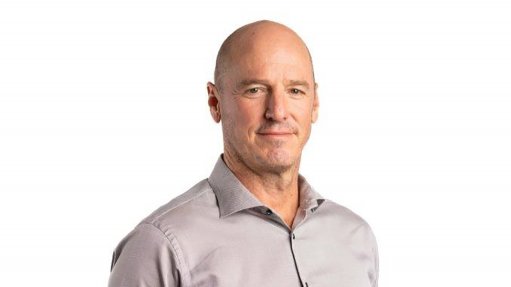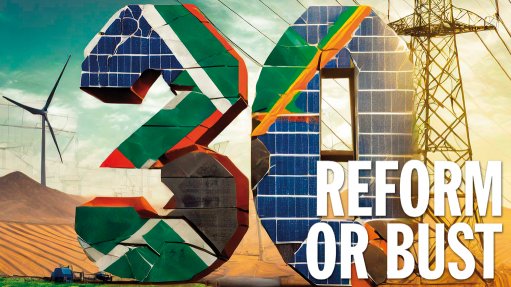Do engineers need ethics?
By: Lorrainne Doherty
The short answer to this question is: yes, they do, but it is perhaps in the ‘why’ and the ‘how’ that the real need and necessity for ethics among engineers and the engineering profession unfolds.
Engineering ethics as an applied philosophy is a relatively new area of study and has been described by Charles Fleddermann as “a body of philosophy indicating the ways that engineers should conduct themselves in their professional capacity”.
While Fleddermann’s definition is to be commended for its brevity, it is perhaps too succinct, as it makes no reference to an engineer’s ‘professional capacity’ being overarched by his or her social context. Whether it be fellow engineering colleagues, the client, the workforce or the community, it is the engineer’s interpretation and resolution of these often conflicting needs and requirements that can create or avert an engineering ethical dilemma. Whether the latter takes place in the boardroom, with the client, in production, or on site, the results can be dramatic and the consequences far reaching, not only for the individuals involved but also for the engineering industry, the engineering profession and the community at large.
From engineering design to engineering project management, from materials used for engineering projects to physical project siting, from project motivation to final project assessment, it is the use and application of acknowledged, and in some cases legislated, ethics in engineering that become paramount. In many cases, the use of a recognised ethical framework by engineers can make the difference between engineering project success and engineering project failure.
To this end, engineering councils worldwide have recognised the importance and practice of engineering ethics in the engineering profession and have developed their own codes of professional conduct, detailing their ethical expectations of their membership. The Engineering Council of South Africa (ECSA) is no different and, in keeping with its global counterparts, its rules of conduct for registered engineers can be seen to embrace what ethicists refer to as the virtue paradigm. The virtue paradigm is embedded in Aristotelian philosophy, which proposes that ‘virtues’ are either ‘moral’ or ‘intellectual’ and are ‘acquired’ – they are not innate human characteristics. Moreover, both ‘intellectual’ and ‘moral’ virtues need to be present if one’s true potential is to be reached.
However, the burning question for South African engineers is: How can they ‘acquire’ these virtues and, in so doing, conform to the ethical requirements of their professional code of conduct and reach their full potential as professional engineers? Aristotle and, indeed, contemporary virtue theorists propose that mentorship is perhaps the most efficient means of ‘acquiring’ virtue, a position fully supported by ECSA, which urges its members to continuously improve their professional skills and those of their subordinates.
In terms of the ECSA rules of conduct, ‘intellectual’ virtue refers strictly to engineering competence, specifically within the locus of engineering knowledge and skill(s), the primacy of public health and safety and engineering professionalism. Engineering mentorship in South Africa provides a means of imparting engineering skills which, in turn, are assisted by national legislation defining engineering standards for the profession, the materials used and public health and safety. Any investigation into an engineering failure will use these same laws and standards as a means of establishing engineering competence and liability.
But what of an engineer’s ‘moral’ virtue, which must also be mentored and nurtured, if an engineer is to reach his or her full potential as a professional? ECSA’s Rules of Conduct For Registered Persons: Engineering Profession Act, 2000 (Act No 46 of 2000), Section 36, outlines expected ethical values and moral actions from its registered engineers and specifically cites integrity, honesty and fidelity. However, the question often posed is: Can these ‘moral’ virtues be mentored and acquired when they defy codification or legislation? It is at this point that ECSA and its requirements for registered engineers becomes all important.
While it is often difficult to define a moral virtue like fidelity or integrity, it is perhaps easier to make a list of what moral virtues are not, and ECSA’s rules of conduct help us in this regard. They are not putting the success of a project before the needs of the community, compromising safety standards and public health for the sake of project deadlines or altering designs or material specifications for financial gain. They are not accepting bribes to misrepresent engineering features or misrepresenting professional qualifications to gain engineering projects.
It is for these reasons that ECSA quantifies its expectations of moral virtues from its registered engineers. This situation must remain, if the profession is to continue to make a meaningful and valuable contribution in both social and technological terms and is to maintain the trust of those with whom it interfaces. Ongoing performance monitoring by ECSA of its members further ensures that ethically unsound engineering decisions that have adversely affected those who comprise the social context of the engineer are dealt with harshly and those engineers who clearly transgress the ECSA rules of conduct and have not practised intellectual and moral virtue, thereby bringing the engineering profession into disrepute, are barred from practising as registered engineers. To this end, virtue theory is vindicated, an ethical requirement for the engineering profession entrenched and an engineering social context acknowledged and upheld.
Doherty lectures in engineering ethics at the University of the Witwatersrand - lorrainne.doherty@wits.ac.za
Comments
Announcements
What's On
Subscribe to improve your user experience...
Option 1 (equivalent of R125 a month):
Receive a weekly copy of Creamer Media's Engineering News & Mining Weekly magazine
(print copy for those in South Africa and e-magazine for those outside of South Africa)
Receive daily email newsletters
Access to full search results
Access archive of magazine back copies
Access to Projects in Progress
Access to ONE Research Report of your choice in PDF format
Option 2 (equivalent of R375 a month):
All benefits from Option 1
PLUS
Access to Creamer Media's Research Channel Africa for ALL Research Reports, in PDF format, on various industrial and mining sectors
including Electricity; Water; Energy Transition; Hydrogen; Roads, Rail and Ports; Coal; Gold; Platinum; Battery Metals; etc.
Already a subscriber?
Forgotten your password?
Receive weekly copy of Creamer Media's Engineering News & Mining Weekly magazine (print copy for those in South Africa and e-magazine for those outside of South Africa)
➕
Recieve daily email newsletters
➕
Access to full search results
➕
Access archive of magazine back copies
➕
Access to Projects in Progress
➕
Access to ONE Research Report of your choice in PDF format
RESEARCH CHANNEL AFRICA
R4500 (equivalent of R375 a month)
SUBSCRIBEAll benefits from Option 1
➕
Access to Creamer Media's Research Channel Africa for ALL Research Reports on various industrial and mining sectors, in PDF format, including on:
Electricity
➕
Water
➕
Energy Transition
➕
Hydrogen
➕
Roads, Rail and Ports
➕
Coal
➕
Gold
➕
Platinum
➕
Battery Metals
➕
etc.
Receive all benefits from Option 1 or Option 2 delivered to numerous people at your company
➕
Multiple User names and Passwords for simultaneous log-ins
➕
Intranet integration access to all in your organisation


















